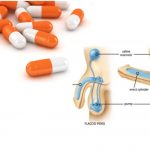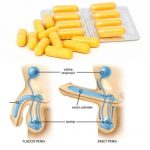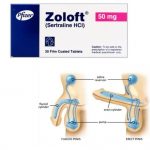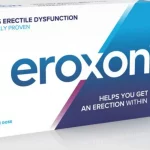Is Strattera Erectile Dysfunction Permanent?
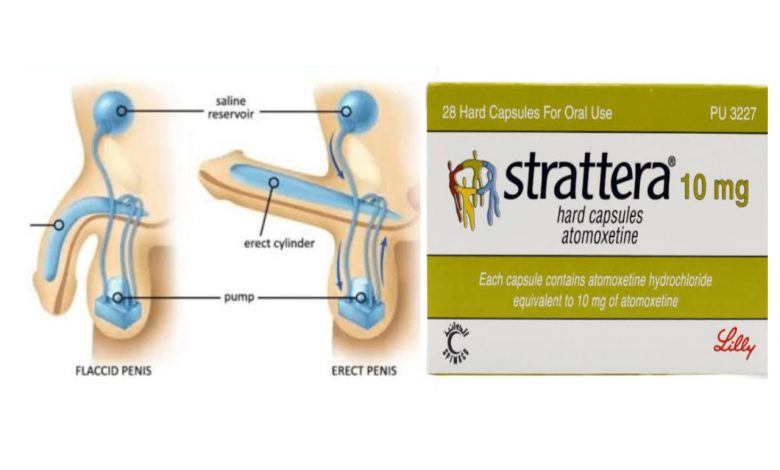
Erectiledysfunction, also known as impotence, is defined by difficulty getting and keeping an erection. It can be an embarrassing thing to talk about. It’s been reported that more than half of men between the ages of 40 and 70 experience some form of ED. So take comfort in knowing that you are not alone.
One reason erectile dysfunction becomes more common with age is that older men are more likely to be on some kind of medication. In fact, an estimated 25% of all ED is a side effect of drugs, according to the Harvard Special Health Report Erectile Dysfunction: How medication, lifestyle changes, and other therapies can help you conquer this vexing problem.
The most common types of medication that are linked to ED include antidepressants, anti-ulcer drugs, tranquilizers, and diuretics—which help the body get rid of sodium and water, and are used to treat heart failure, and liver failure, and certain kidney disorders.
What is Strattera?
Strattera is a brand of atomoxetine, a prescription medication used to treat attention-deficit hyperactivity disorder (ADHD) in children, teenagers, and adults. It belongs to the group of medicines called selective norepinephrine reuptake inhibitors (SNRIs). Drug treatment is the most effective treatment for ADHD as neurodevelopmental disorder.
Strattera works in the brain to increase attention and decrease restlessness in people who are hyperactive, have problems with concentration, or are easily distracted. This medicine may be used as part of a treatment program that includes social, educational, and psychological treatment.
Strattera is available in 10 mg, 18 mg, 25 mg, 40 mg, 60 mg, 80 mg, and 100 mg capsules.
How should I take Strattera?
Strattera comes as a capsule to take by mouth. It is usually taken either once a day in the morning, or twice a day in the morning and late afternoon or early evening. Strattera may be taken with or without food. Take Strattera at around the same time(s) every day.
The typical dosing of Strattera is as follows:
Adults and children over 70 kg (154 lbs) in body weight: The typical starting dose is 40 mg by mouth per day. It can be given once in the morning or as divided doses in the morning and late afternoon/early evening. After 3 days, your provider will raise your dose to 80 mg per day. The dose can be adjusted up to a maximum daily dose of 100 mg.
Children 70 kg (154 lbs) or less in body weight: The total daily dose will depend on the child’s weight and can be given once in the morning or as divided doses in the morning and late afternoon/early evening. The typical starting dose is 0.5 mg/kg by mouth per day and then raised to 1.2 mg/kg per day after 3 days. The dose can be adjusted up to a maximum of 1.4 mg/kg per day (or 100 mg per day, whichever is less).
Children less than 6 years old: Atomoxetine (Strattera) is not recommended for this age group. Ask your child’s provider for an alternative medication for your child.
Follow the directions on your prescription label carefully, and ask your doctor or pharmacist to explain any part you do not understand. Take Strattera exactly as directed. Do not take more or less of it or take it more often than prescribed by your doctor.
Swallow Strattera capsules whole; do not open, chew, or crush them. If a capsule is accidentally broken or opened, wash away the loose powder with water right away. Try not to touch the powder and be especially careful not to get the powder in your eyes. If you do get powder in your eyes, rinse them with water right away and call your doctor.
Your doctor will probably start you on a low dose of Strattera and increase your dose after at least 3 days. Your doctor may increase your dose again after 2–4 weeks. You may notice an improvement in your symptoms during the first week of your treatment, but it may take up to one month for you to feel the full benefit of Strattera.
Strattera may help to control the symptoms of ADHD but will not cure the condition. Continue to take atomoxetine even if you feel well. Do not stop taking atomoxetine without talking to your doctor.
Can Strattera cause erectile dysfunction?
Yes, studies have reported that Strattera can cause erectile dysfunction, ejaculatory disorder, and ejaculation failure, and appears to impair sexual function in some patients by triggering changes in sexual desire, sexual performance, and sexual satisfaction. These are listed among Strattera’s side effects long-term.
According to reports Strattera also causes horniness. Several people have reported that Strattera makes them horny without much increase or decrease in libido (Strattera hypersexuality). Taking Strattera does not help with erectile dysfunction.
Is Strattera erectile dysfunction permanent?
No, Strattera-induced erectile dysfunction is not permanent, there are many different options for treating this, however, DO NOT STOP your medication without working with your primary care provider.
Your doctor may recommend treatments that can enhance sexual performance while allowing a person to continue taking potentially life-saving or life-extending medications. Often, such treatments begin with making changes to a person’s routine. These include:
- adopting healthful eating habits avoiding using recreational drugs
- increasing daily exercise
- limiting or avoiding alcohol
- maintaining a healthful weight
- quitting smoking
- sleeping well
If these interventions fail, your doctor may switch you from Strattera to another ADHD medication that is less likely to cause side effects like erectile dysfunction. There’s no firm rule about how or when to switch, so it’s important to follow your doctor’s guidance.
Does Strattera increase testosterone?
Yes, studies have shown that in men, Strattera can affect the levels of testosterone by decreasing its excretion rate. Testosterone plays a crucial role in male sexual function, especially sexual desire and performance.
Can I take Strattera while on Strattera?
No, there are several interactions between Strattera and Viagra, do not take Viagra while on Strattera doing so can result in atrial fibrillation in women and emotional distress among men. Discuss with your doctor or healthcare provider about safer ED medications while on Strattera.
What are the other side effects of Strattera?
Common side effects of Strattera include:
• Abdominal pain
• Constipation
• Cough
• Decreased appetite
• Depression
• Dizziness
• Drowsiness
• Dry mouth
• Erectile dysfunction
• Headache
• Hot flashes
• Increases in blood pressure (BP; 15-20 mm Hg or greater) and heart rate (HR; 20 beats/minute or greater)
• Indigestion/heartburn
• Irritability
• Itching
• Menstrual disorder/increased menstrual cramps
• Mood swings
• Nausea
• Sexual side effects (impotence, loss of interest in sex, or trouble having an orgasm)
• Sinus headache
• Skin rash (dermatitis)
• Trouble sleeping (insomnia)
• Upset stomach
• Urinary hesitation or retention
• Vomiting
• Weight loss
Serious side effects of atomoxetine include:
• Depression and depressed mood, anxiety
• Difficulty urinating
• Excess sweating
• Fainting
• Lethargy
• Male pelvic pain, urinary hesitation, or retention in children and adolescents
• Muscle wasting (rhabdomyolysis)
• Numbness or tingling
• QT prolongation, fainting
• Raynaud’s phenomenon
• Reduced sense of touch, numbness, and tingling in children and adolescents, sensory disturbances, tics
• Unusually fast or irregular heartbeat
Strattera may cause other side effects. Call your doctor if you have any unusual problems while taking this medication.
If you experience a serious side effect, you or your doctor may send a report to the Food and Drug Administration’s (FDA) MedWatch Adverse Event Reporting program online (http://www.fda.gov/Safety/MedWatch) or by phone (1-800-332-1088).

